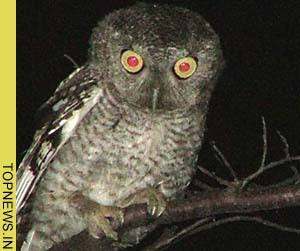Night owls can work longer than early birds
 Washington, Apr 24 : Early birds may be chirpier in the morning, but it's the night owls that score over them when it comes to being alert after waking up from sleep, concludes a new brain-scan study.
Washington, Apr 24 : Early birds may be chirpier in the morning, but it's the night owls that score over them when it comes to being alert after waking up from sleep, concludes a new brain-scan study.
In the study, researchers monitored the brain activity of self-described early birds and night owls in a sleep lab.
Led by Christina Schmidt of the University of Liege in Belgium, the researchers also took hourly saliva samples to measure the sleepers'' levels of melatonin-a hormone thought to help naturally regulate sleep cycles in mammals.
They allowed both night owls and early birds to stay on their preferred sleep schedules, but each group was awake for the same number of hours each day, reports National Geographic News.
An hour and a half after waking, the groups scored the same on tests that required them to pay attention to a task.
However, it was found that after ten hours of waking up, early birds showed reduced activity in brain areas linked to attention compared with the night owls.
They observed that the "morning people" also felt sleepier and performed more slowly on tests.
Furthermore, as the day wore on, early birds showed less activity in a region deep in the brain involved in the so-called circadian master clock, which regulates our daily cycles of alertness.
Thus, they concluded that people tend to favour mornings or nights based at least in part on how they react to a kind of competition in the brain.
Circadian hormones, which keep us alert while awake, can get overridden by sleep pressure, a physiological pull that causes us to get sleepier the longer we''re awake.
Study co-author Philippe Peigneux, also of the University of Liege, said that while night owls seem to handle sleep pressure better, the late-to-bed strategy might backfire outside the lab.
He said: "Morning types may be at an advantage, because their schedule is fitting better with the usual work schedule of the society.
"It may represent a problem for evening types obliged to wake up early while having difficulties going to bed in the evening, eventually leading to a sleep debt."
The findings of the study have been published in the latest issue of the journal Science. (ANI)